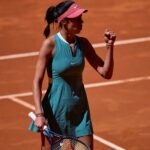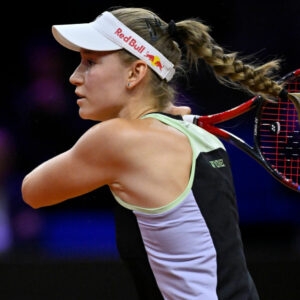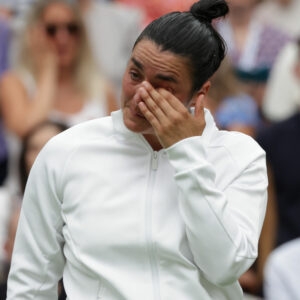Rybakina reigns supreme as Wimbledon champion, outwits Jabeur
The 23-year-old becomes the second lowest ranked player to win the Wimbledon women’s singles title
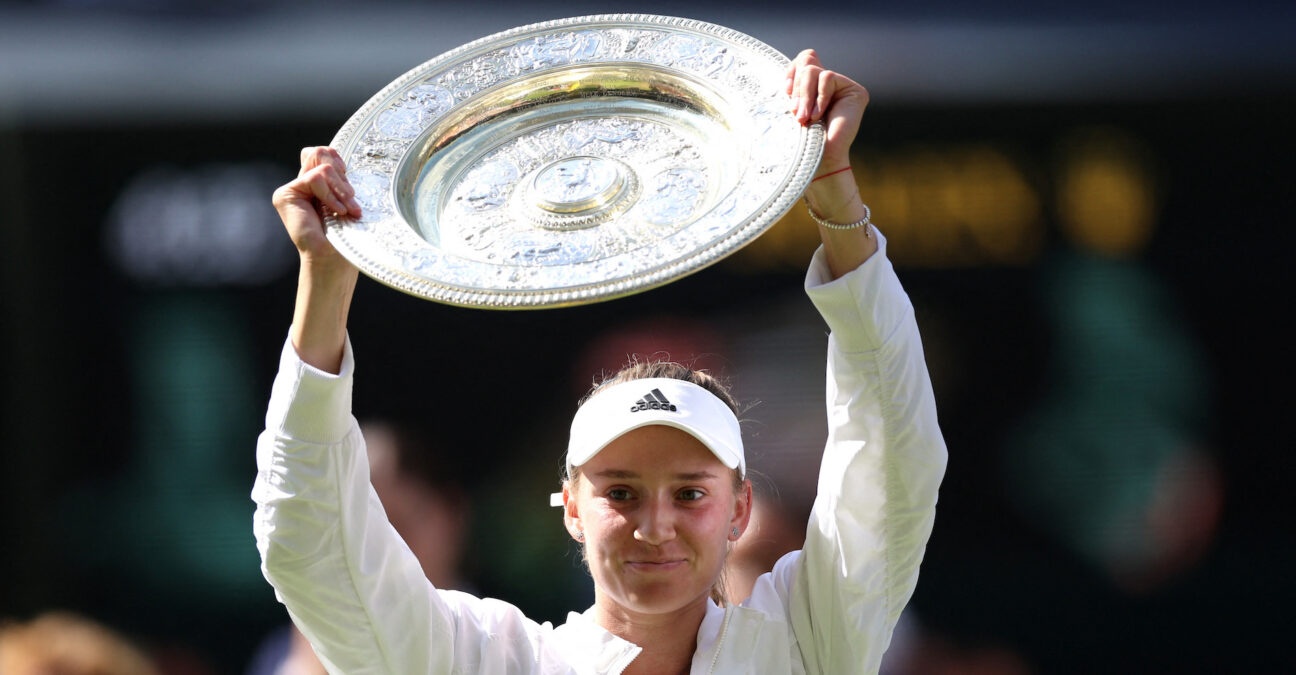 Kazakhstan’s Elena Rybakina celebrates with the trophy after winning the women’s singles final against Tunisia’s Ons Jabeur (AI/Reuters/Panoramic)
Kazakhstan’s Elena Rybakina celebrates with the trophy after winning the women’s singles final against Tunisia’s Ons Jabeur (AI/Reuters/Panoramic)
Elena Rybakina won her first Grand Slam title in the Wimbledon sunshine, coming from a set down to defeat world No 2 Ons Jabeur 3-6, 6-2, 6-2.
Saturday marked the first time in the Open era that two women were contesting their maiden Grand Slam final and the tennis did not disappoint.
With the win, Rybakina, ranked 23rd, became the second-lowest ranked female player in the Open Era to win the Wimbledon title – only behind Venus Williams who won the title in 2007 as a former world No 1 ranked 31st.
The Kazakh, always notably subdued in her celebrations, did not mark match point, just acknowledged the crowd and then took her seat calmly before asking if she was allowed to greet her family and team, jogging up the steps to the box and handing out high-fives and hugs.
The Duchess of Cambridge presented the trophies, patting both players on the shoulder.
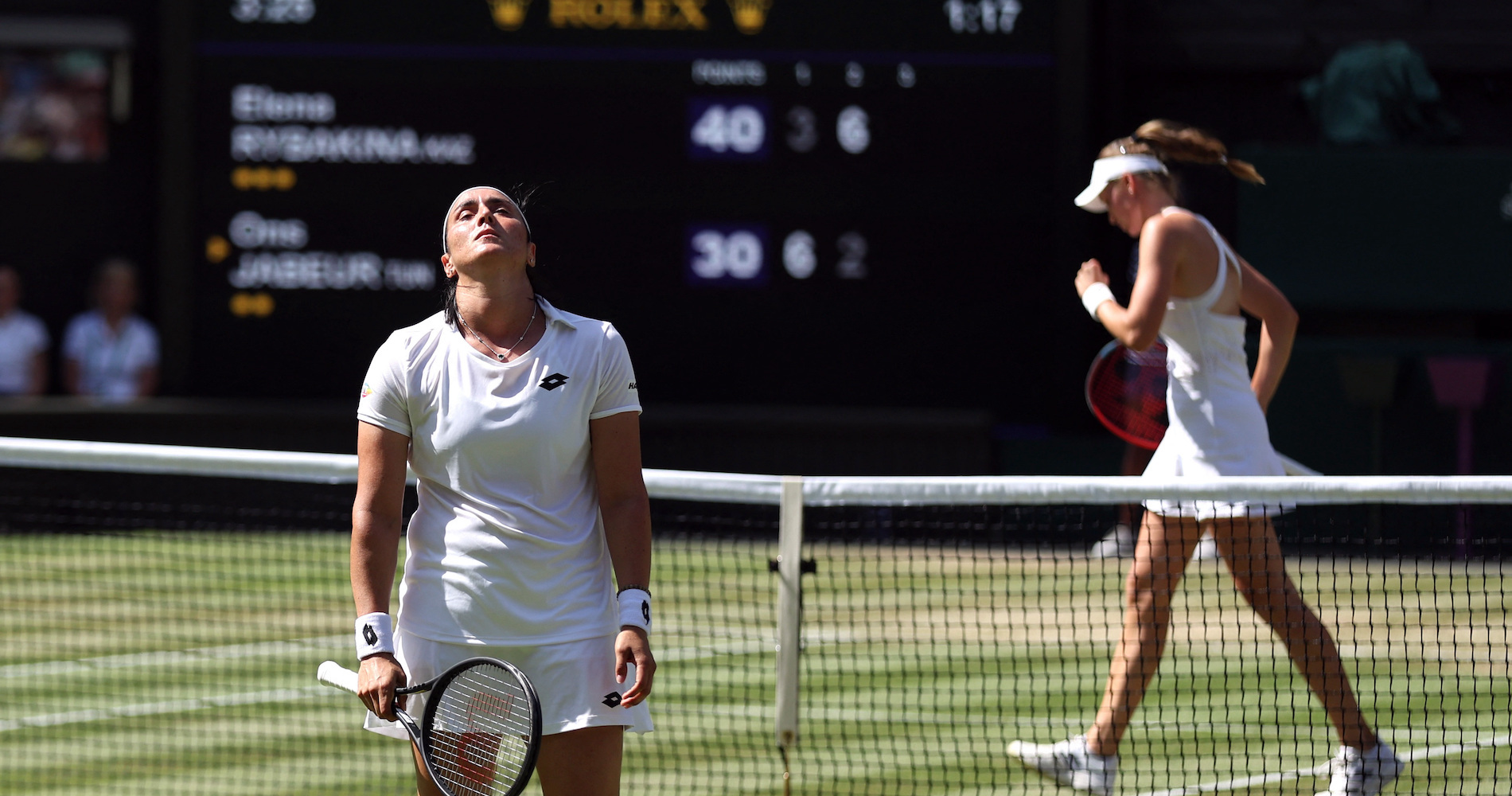
Rybakina: “super nervous”
“I was super-nervous before the match, during the match, and I’m happy it’s finished – I’ve never felt something like this!” said Rybakina afterwards, who thanked the crowd and the visiting dignitaries before paying a tribute to her opponent: “I ran today so much I don’t think I need to do fitness any more.”
Rybakina’s serve was off-radar in the first set, winning just 53 percent of first-serve points, below her tournament average of 75 percent.
Jabeur’s arsenal of variety gave her the early lead – but her less reliable serve, veering from aces to double-faults, was exposed in the second set. She also looked physically less comfortable, less steady on her feet, and Rybakina capitalised. The Kazakh reduced her unforced error count to just seven (compared to the 17 she’d hit in the first set) and almost doubled the amount of winners she hit – 13 compared to seven in the first.
The title ended a four-final losing streak for Rybakina, who now has three singles titles to her credit. Jabeur’s scalp also marked the biggest win of the Kazakh’s career, edging her win over world No 3 Karolina Pliskova in Dubai in 2020.
“No words” – a muted reaction from the new Wimbledon champion
And with some close Hawk-Eye calls going in her favour, Rybakina began the third set in fine fashion as well, breaking the Jabeur serve in the first game. The Tunisian tried to revert to her usually successful tactic of tempting her opponent forward, but Rybakina was equal to it, dominating at the net too.
In the sixth game of the decider, Jabeur used her slice to wicked effect, but could not take any of her three break points – and used up all her challenges as Rybakina held her serve, with the net cord helping her once again on game point. After that, the match went in just one direction.
I feel really sad, but it’s tennis – there is only one winner
Ons Jabeur
“To be a winner is just amazing,” added Rybakina. “I don’t have words to say how happy I am.”
“I feel really sad, but it’s tennis – there is only one winner,” said Jabeur afterwards. “I’m happy, I’m trying to inspire many generations from my country and I hope they’re listening.”
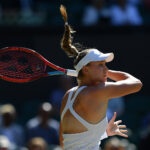

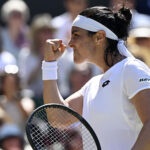


People in this post
More tennis news
Tennis Majors launches new WhatsApp channel: Join us now!

Madrid Masters: Shang beats Moutet in epic to reach second round

“Exhausted” Raducanu to focus on recharging after chastening defeat at Madrid Open

Madrid Open: Saville beats Baptiste to book spot in second round

Madrid Open: Danilovic makes impressive fightback to beat Burel and make second round
